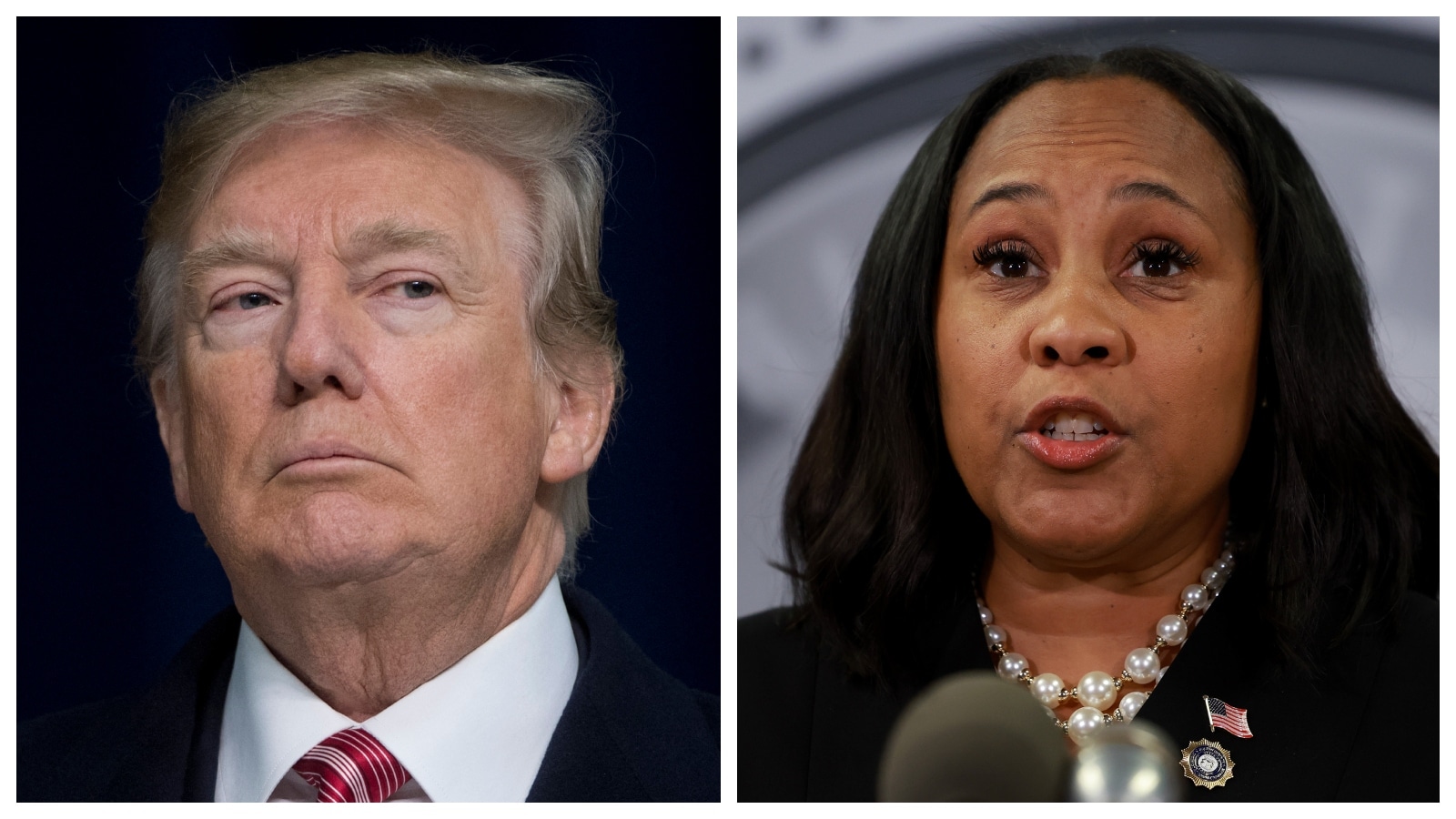OPINION: This article may contain commentary which reflects the author's opinion.
Attorneys for a co-defendant in former President Donald Trump’s Georgia case will be permitted to argue that Fulton County District Attorney Fani Willis exceeded her authority by levying election-related racketeering charges against him, according to a late Monday ruling from Judge Scott McAfee.
McAfee’s decision to grant a certificate of immediate review for Harrison Lloyd, a former leader of the Black Voices for Trump coalition, allowing him to file a request to the Georgia Court of Appeals, is surprising because it conflicts with previous rulings that quashed procedural motions aimed at preventing Willis from pursuing certain crimes.
McAfee was open to considering Lloyd’s claim that Willis’ investigation related to the election was outside her jurisdiction. Lloyd had previously argued that Willis did not have the authority to investigate or bring charges against him without a referral from the State Election Board, according to legal filings obtained by Law & Crime.
In January, McAfee determined that Willis had the authority to investigate election-related charges without needing a referral from the secretary of state or any electoral body.
On appeal, a judge in Fulton County upheld his decision. McAfee, however, asserts that a recent motion for a certificate of review was significant enough for an appeals court to take into account.
WATCH:
He wrote earlier this week that the earlier decision to grant Willis jurisdiction is “of such importance to the case that immediate review should be had.”
The Georgia Court of Appeals now needs to investigate whether Judge McAfee correctly followed the law in situations where defense attorneys argued that there were conflicts. They further claim that the judge granted a district attorney the authority to pursue election-related charges without the usual steps required, which involve presenting the case to a grand jury.
“It is undisputed that no referral was sought nor granted,” Lloyd’s latest motion reads. “Despite this Court’s explanation of ‘harmony’ amongst these statutes, to hold that the District Attorney holds concurrent jurisdiction with the SEB, and that a referral from the SEB to the District Attorney is not necessary in election-related cases, renders O.C.G.A. § 21-2-35 absolutely meaningless and superfluous.”
Attorneys representing Lloyd have 10 days to file a motion with the appeals court. The court will then have 45 days to decide whether to grant the appeal.
Floyd was one of the few co-defendants unable to post bail and was jailed in Fulton County, where he later described the conditions as more appropriate for a third-world country than a U.S. jail.
“What’s going on in that jail, I’ve seen worse conditions in Iraq,” Harrison, a former Marine, said on Fox following his release. “When I went to my cell for the first time, there was fecal matter smeared on one of the walls. The first morning that I woke up, the guy in the cell next to me was being tased.”
“I’m just grateful that I served in the United States Marine Corps infantry and I’ve dealt with worse,” he said, asking the audience to “pray for the inmates who are in that jail.”
Willis made headlines again earlier this week when she said the “train is coming” when speaking about the prosecution of former President Donald Trump and his 14 co-defendants.
Several legal analysts are sounding the alarm about her comments.
Atlanta defense attorney Andrew Fleischman told Salon that Willis “should not” be making those comments.
“Prosecutors announcing at the outset of a case who they’re indicting, the charges being brought and why is fine, but they should not make public statements that have no legitimate law enforcement purpose even in the context of a political campaign,” Fleischman said.
“They strengthen arguments for gag orders and disqualification, and they harm the public’s trust that this trial is about holding people accountable for crimes they have committed, rather than as part of an overall political strategy,” Fleischman added.
Georgia State University law professor Clark Cunningham made similar comments, telling Salon that Willis’ comments to CNN sounded like “campaign remarks” that “were really addressed to an audience of voters for the upcoming primary and general election.”
